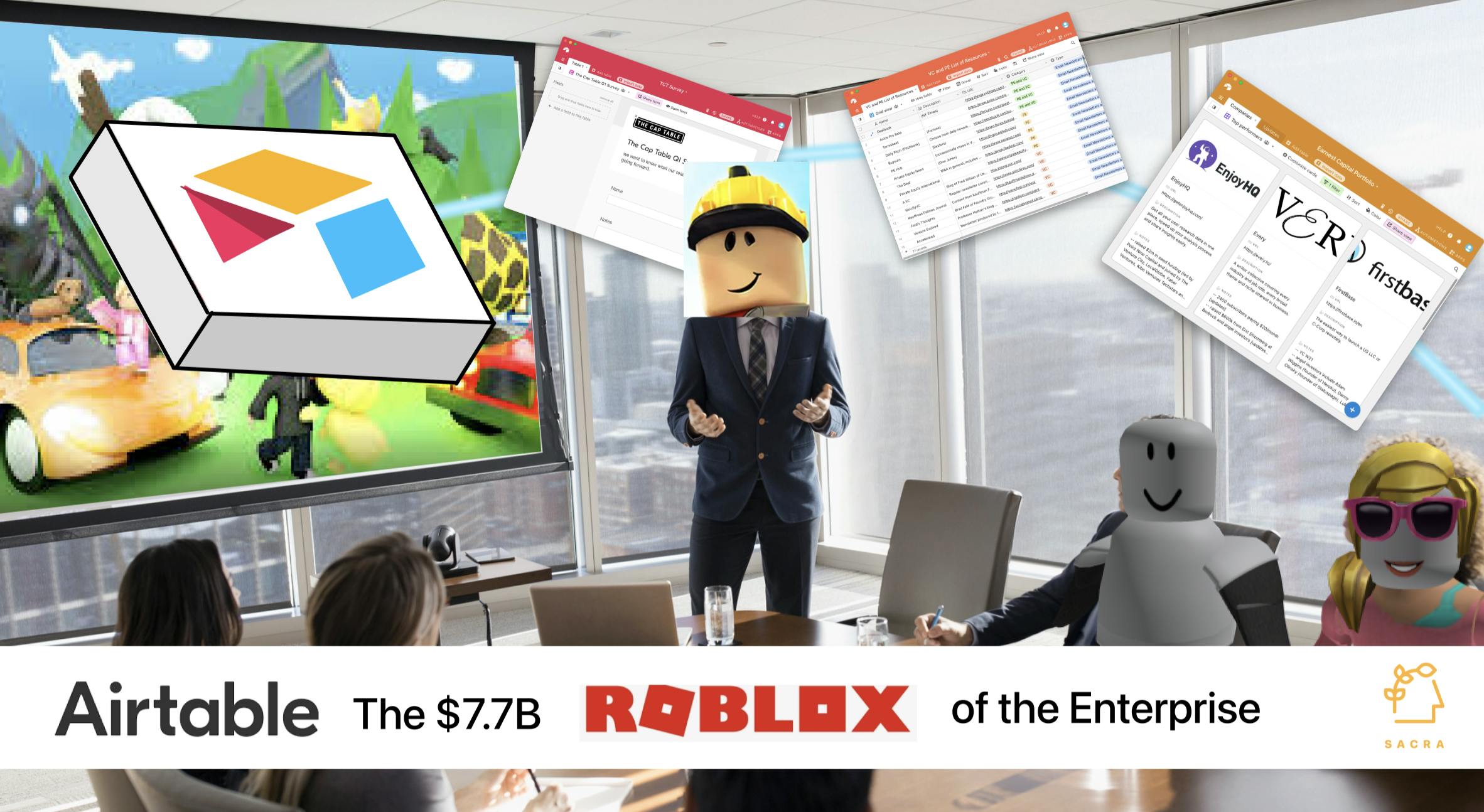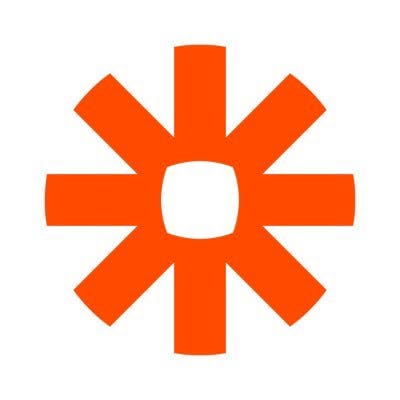Startup CEO and founder on Airtable use cases and process
 Jan-Erik Asplund
Jan-Erik Asplund
Questions
- What are the main jobs that you use Airtable for?
- Got it. So, you're using Airtable, Airtable forms, and any Blocks?
- To send to Slack, is that a native Airtable action or is that through Zapier?
- There's a kind of tension here that we're seeing between the more consumer-y roots of Airtable, which is where you are, and then the more upmarket, enterprise approach, which is what that sounds more like.
- You described a using Airtable as a hiring platform and then transitioning to a job board technology. I wonder if you've seen other different use cases for Airtable kind of pop up randomly in your work.
- Have you seen that work out well?
- Have you thought about alternatives to Airtable?
- What use case do you think you'd least want to switch away from Airtable from?
Interview
What are the main jobs that you use Airtable for?
Guest: The main thing I use it for is our application form to join the community. And then I also, it's a nice little setup though, it's a form and then that people fill that out and then I collect all the data, which is actually interesting.
I actually just recently ran all that data through Clearbit, which generated some moderately interesting things.
Then, everybody gets reviewed and then when they get added, which I still do manually, then they get a check box. I check the little box next to their name saying that they've been added.
So yeah, that's the best database of our members that I have and I can always go back, see when people joined, whatever. Figure out where they came from, what's their job title, a couple of other things that I collect in there.
So yeah, [Airtable] is the best database of our members that I have and I can always go back, see when people joined, whatever. Figure out where they came from, what's their job title, a couple of other things that I collect in there.
We used to do a Google Form, which was a pain in the ass. And then, we used to do, which I tried Typeform, which I also didn't like, so Airtable was definitely the easiest of those.
And then, I feel like I use it for a couple of other things that might be useful. I used to use it, I don't anymore, but I used to use it for job postings. And actually, I have a nice little automation set up where people would fill out again, fill out a form to post their job and then you'd ask them a bunch of questions but it was a lot of if-then statements so it was like, "Would you like the person to apply by email?" And then depending on the answer, you get different questions, and there was a couple of those in there.
And then, depending on which of those things they chose, the automations were different so that when it was posted in Slack it would all make sense. So, it'd say like, "Use this email to apply," versus, "Use this link to apply," stuff like that.
So, that actually worked nicely but now it just all runs directly through the actual job board software so I don't need that anymore.
I do also have a content calendar in Airtable that I use to keep track of ideas. And then, I have tags I use so that I know like, is it's going to be a blog post? Is it going to be for paid members or free members? And something else ... oh, of course our newsletter actually, I use that content calendar to keep track of the newsletter too.
And then, I think when we talk about Zapier it's like that content calendar as ideas move from just an idea to it's actually happening, then Google docs are created and kept in a dry folder and that type of thing.
I feel like there's at least one other thing that I've been using it for, which is that in our career advice channel, people wanted to submit anonymous questions, which you obviously can't do in Slack.
I made an Airtable form that just collects the question and then posts it right back in Slack, but it just doesn't associate their name with it.
I think that's mostly it. We have another form, an Airtable form to collect submissions for articles. I created an "essential reads" list for our pro members that lives in Airtable.
When we first were getting the job board started, I was experimenting with screening every candidate myself, which didn't last very long. And the way that would work is people applied through an Airtable form I put on our application site, and I would get notifications anytime people applied, after which I would go into the Airtable base and write up my comments on what I thought of them and then pass that on.
Guest: I don't think I use any Blocks because I don't pay for it, I'm just on a free account.
Guest: I think you can do it natively through Airtable, but you have to pay for it. As I already paid for a Zapier account, I just do it through there.
Airtable was one of our partners and we did this quick series of tutorial videos and some of the stuff they showed was like, it was interesting but it was almost like too advanced from what I was hoping to get out of it. I just wanted people to understand basics like, how do you make a content calendar with a couple of nifty little automations?
And they had these crazy marketing plans that were planned out by quarter and then they were able to assign, they have task management in there and these visibility dashboards for managers.
And then, all of it would roll up into the greater marketing plan. It was so confusing. And I could see how it worked for Airtable if this is the tool, you work for this company. They obviously did all of their automation stuff directly in there, which is cool but I haven't messed with that at all.
There's a kind of tension here that we're seeing between the more consumer-y roots of Airtable, which is where you are, and then the more upmarket, enterprise approach, which is what that sounds more like.
Guest: Yeah. I wonder, I don't know if this is helpful. My brother is a developer and he, every year at Christmas time, my immediate family has, we had called the Christmas Cheer contest.
And so, we just have a group text and everyone says like, "Oh, they got our Christmas tree," or like, "Oh, here's my dog wearing a Santa hat," and see who can accumulate the most points showing the most Christmas tree.
Anyways, he built us a dashboard to keep track of it and he is on, he had a kid so he's not working right now and he built this hilarious Airtable database that tracks all this and then use the Airtable API to connect it to a frontend.
And I was talking to him he was like, "This is such overkill for what I'm doing, but it's actually really cool."
I was trying to get him to build me a thing that would house all of our ... the number of people on our email list, the number of people in our Slack community, the number of people do whatever, so that I could then pull those numbers and put them around the site without having to manually update every mention of every number that appears anywhere on the site.
So, it's always automatically update and so this was him trying to figure out if that was possible, which it sounds like it actually is, which I think is cool and I want to try that because we have old blog posts that say like, "Join our community, there's 800 members," or whatever.
I can't just remember a domain that'll go update that every time we add more people. So, that's super random but I did think that was interesting.
Sacra: There's an aspect of fun where you're actually creating something versus just hooking up two tools with some hacky integration.
Guest: Totally.
You described a using Airtable as a hiring platform and then transitioning to a job board technology. I wonder if you've seen other different use cases for Airtable kind of pop up randomly in your work.
Guest: Yeah, that's interesting. That makes sense because I feel like I learned how to use Airtable at a previous company. And then, now I'm doing this and it's like, Airtable is probably one of the very first tools I started using because I needed forms, I need this little database of our members, a couple of other basic things.
And then over time, yeah some of those have been replaced by specialty SaaS tools but it still exists, I still use it.
So, it's a cool way to prototype out your own little thing but then it's like you do hit this threshold where it's like, "Should I build a fancy, no code job board or maybe get a developer to help me do it? Or should I just pay $99 a month for a job board now that I know I want this thing?"
So, it's a cool way to prototype out your own little thing but then it's like you do hit this threshold where it's like, "Should I build a fancy, no code job board or maybe get a developer to help me do it? Or should I just pay $99 a month for a job board now that I know I want this thing?"
I feel like because I've used Airtable too probably also go back and forth between personal and professional use of it.
The thing I use Airtable for the most is a running log that I've been keeping for three or four years. Everything's in one place, it's all sorted by week and month and by activity and you can add up distance and time and all these other things and sweet.
I mean, I literally go in every single day and update something in there. But yeah, I guess I learned how to do it with my last company first before adopting that.
But I could see that people would maybe do something like that and then be like, "Oh, maybe we should use this at work too."
Have you seen that work out well?
Guest: Well, at a certain point it stops scaling well too because at some point you need to have basically an administrator of it.
The Airtable people themselves are explaining to me they have this fancy marketing plan in their table but only one person is allowed to touch anything because otherwise, it will break the whole thing. And that fragility, I feel like that scares people.
The Airtable people themselves are explaining to me they have this fancy marketing plan in their table but only one person is allowed to touch anything because otherwise, it will break the whole thing. And that fragility, I feel like that scares people.
And then there's this question of who is using it.
The reason I reached out to them to be a sponsor was because they have this infinite use case problem and that was my pitch to them.
It was like, "I've got a bunch of content marketers who probably know your tool exists but have no idea what to do with it. So, let's teach them some things that they could do with it." And that was appealing to them.
But in working with them, I also recognize it's the same problem notion as it's like, it would be nice to have content marketers use the tool but are they really our core audience?
Should we spend more time marketing to product engineers because we know that they're great customers? But I could almost sense this wavering of like, "It'd be great if we did this also, is it worth the time?" And I feel like if you have infinite use cases, you'll always bump into that.
Have you thought about alternatives to Airtable?
Guest: I haven't. but it's just me here so I don't really care. I just need a simple place to jot stuff down and try to remember what I'm working on.
If we had, honestly though, say I was going to hire a content marketing person, I would probably just say like, "Which tool do you want to use? I don't really care, you just pick what you want because you're going to be in charge of it."
And I can see that I don't know how I would feel if they chose Airtable and did all this customizing and automating that I didn't know how to use or I didn't understand what was going on behind the scenes.
I feel like that would just be ... And I guess, that happens in a SaaS tool also, but I feel like it's more, it's that fragility, like, "Am I going to inadvertently trigger an email to somebody if I do this or something?"
What use case do you think you'd least want to switch away from Airtable from?
Guest: Yeah, managing and keeping track of my customers has been real useful. Although it's funny because it's useful to keep track of and then the other automation there is in the forum people can say, "We want to get the newsletter or not," and that will add them.
So, that's all super helpful but then it's funny when I wanted to do the Clearbit analysis, I ended up just exporting to a CSV, running through Clearbit and then doing more analysis in sheets. So, it really only served as the repository, I couldn't actually do anything there. I guess, maybe with Blocks, maybe you could.
Disclaimers
This transcript is for information purposes only and does not constitute advice of any type or trade recommendation and should not form the basis of any investment decision. Sacra accepts no liability for the transcript or for any errors, omissions or inaccuracies in respect of it. The views of the experts expressed in the transcript are those of the experts and they are not endorsed by, nor do they represent the opinion of Sacra. Sacra reserves all copyright, intellectual property rights in the transcript. Any modification, copying, displaying, distributing, transmitting, publishing, licensing, creating derivative works from, or selling any transcript is strictly prohibited.









